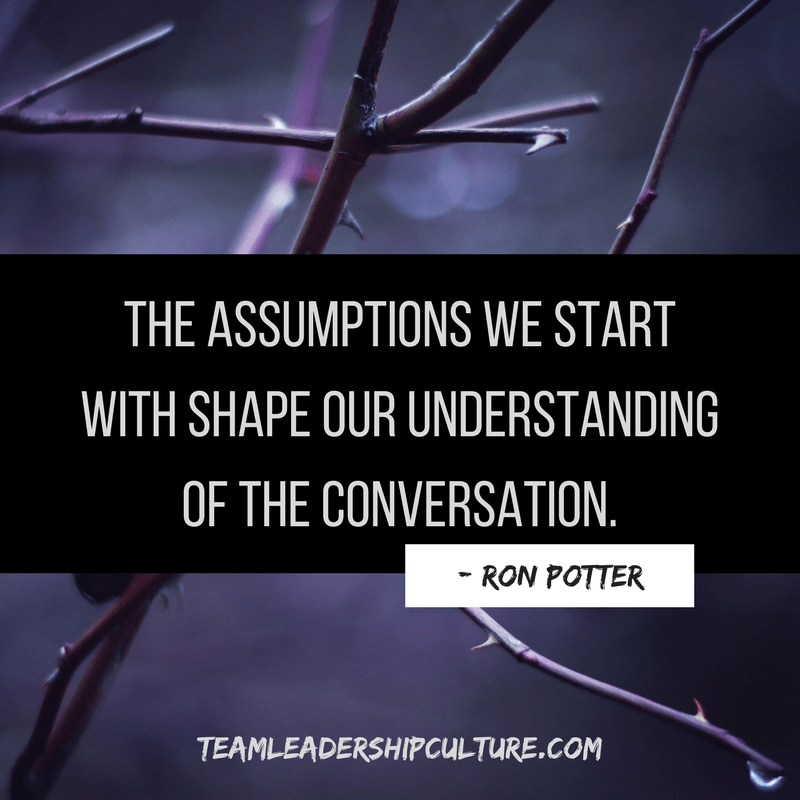How much does your point of view affect the conversation?
Joshua Spodek, author of Leadership Step by Step was about to interview me for a podcast episode on his website. Or so I thought.
Josh and I had spoken a few times and I had recently read his book. Josh is good at putting together his own podcast on his website and I wanted to learn. But after a few minutes into our conversation with Josh asking me what I wanted to talk about and me asking him about how he would like to conduct the interview, we both realized we had made different assumptions. Josh thought I wanted to learn by conducting an interview with him. I assumed he would conduct an interview with me and I would learn from the experience.
But, those misaligned assumptions left both of us thinking about where this thing was going and what was wrong with the other person. When we both realized what was happening we had a good laugh and even told some stories of previous experiences of misaligned assumptions. It ended well because both of us had a desire for it to work and both appreciated the value that the other person brought to the conversations. Business meetings don’t always go that well.
The assumptions we start with shape our understanding of the conversation.
What’s the point of your point of view?
- Defend your position?
- Win the argument?
- Gain power over the other person (your victim)?
Or
- Learn?
- Listen?
- Share your assumptions so that we can build a new outlook together?
When you finally realize that your assumptions are just that, assumptions, you then have a fighting chance for something good to emerge.
Each person is so unique in their background, experience, education, learning method and any number of variables, you should naturally assume each person will have a different assumption on a given topic. All of them valid.
The validity of assumptions is a complicated topic and is tied up in the complexity of assumptions. What makes an assumption valid for you?
- Facts, logic?
- A good feel for correctness?
- Conceptually valid?
- Promotes good will?
- Maintains relationships?
All these reasons are valid. But only one may be valid for you. That’s OK unless you begin to assume that your judgment of validity is the only valid approach. Then you’re dead wrong. All assumptions are valid for the person who holds them. Our job as leaders and team members is to listen to and understand the diversity of assumptions and then build a team view that will create team commitment.
If the point of your assumptions isn’t to build toward a joint, collaborative team assumption and commitment, then you’re just poking people in the eye with a sharp stick.

